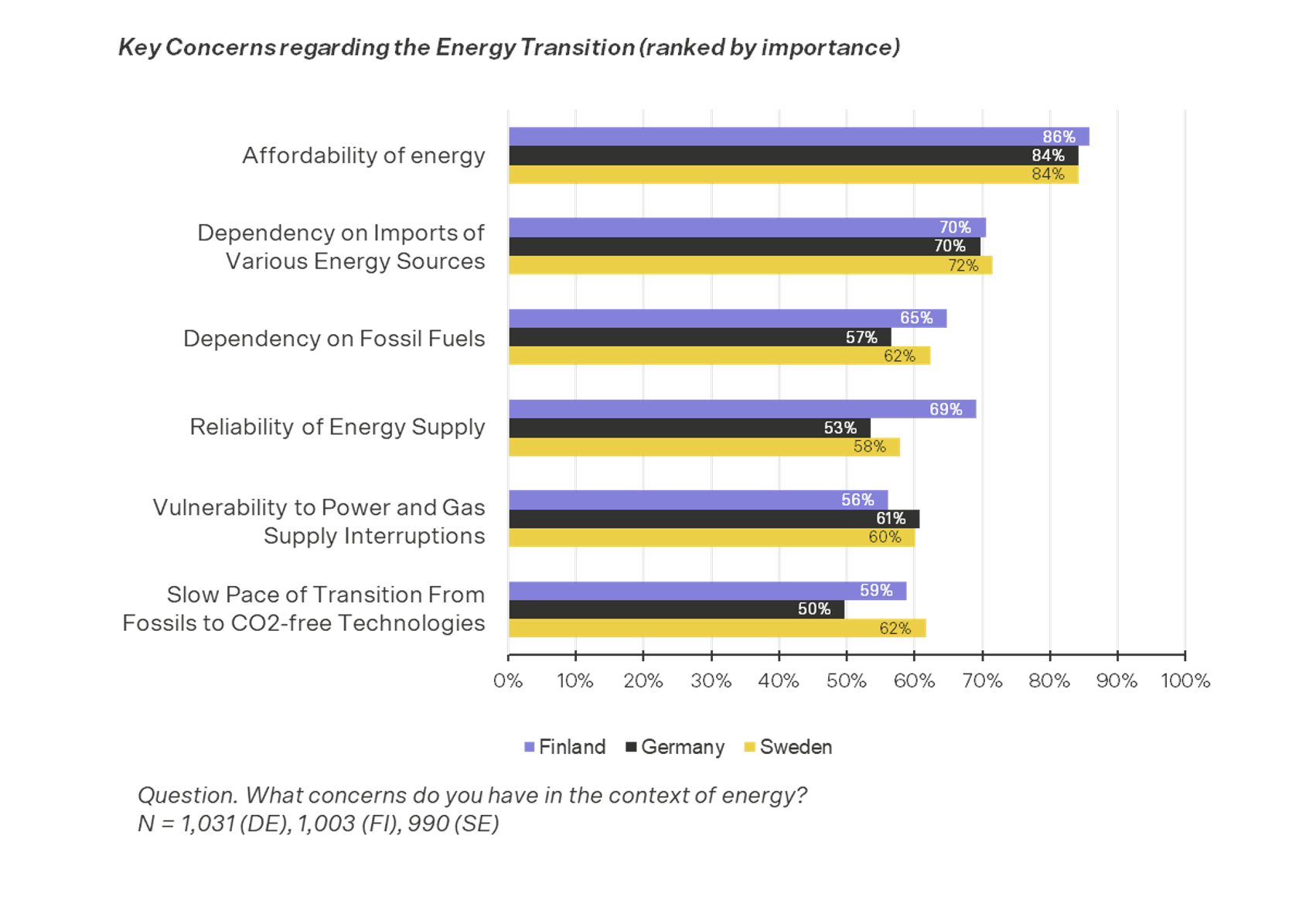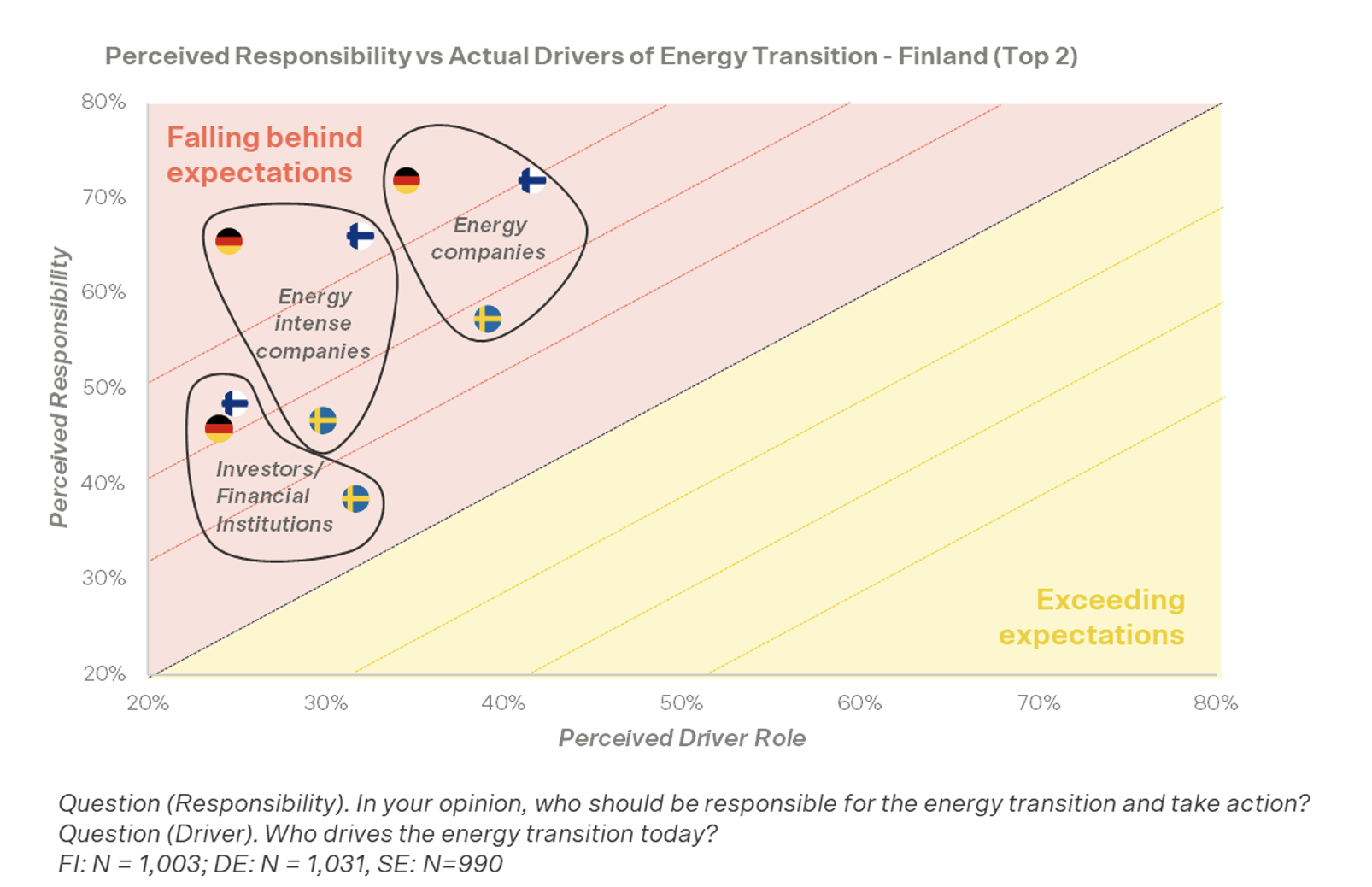In the last decade, transformation of the Energy sector has been a global concern, with moves being made away from fossil fuels and toward clean energy, in an effort to achieve sustainability. Since Russia’s war against Ukraine however, the key concerns have shifted overnight towards independence and security of supply, which threaten to impact pricing and affordability for a longer period of time.
In 2015 and 2016, when the Paris Agreement was put in place to limit global warming to 1.5 degrees Celsius, companies and brands were slow to react. This despite a 5-year cycle of increasingly ambitious climate action, as directed by the nationally determined contributions (NDCs) countries had to submit.
Since 2015 a perfect storm has formed. Finding an answer to the dramatic climate changes has become imperative, while at the same time mastering the necessary energy transition has become one of the most pressing topics and a threat to industry and society — even during the Covid pandemic.
Energy companies have been challenged by various stakeholders, and with Greta Thunberg and the Fridays for Future protests, the topics of climate change and the need to decarbonize have gained broad awareness not only with the general population, by also among politicians and policymakers.
Short term importance: From green and sustainable energy to diversification and independence
While the question of how to maintain affordability during the transition to clean and renewable energy remains, there is the more pressing issue of how to achieve independence from Russian gas, oil, and coal as quickly as possible.
Security of supply has changed in its meaning. Wondering if windmills and solar panels might be enough to deliver energy for a few days or weeks with no sun and wind, has changed into a worry about getting enough gas to even keep the lights on during the next winter.
Vivaldi recently conducted a representative study among the general population in several European countries with over 3000 participants, revealing an inconvenient truth: 2/3 of Germans see the energy transition as an important topic for society, but half of the population think that progress comes too slowly.

When the survey was conducted before the start of the Russian war against Ukraine, high energy prices were still far beyond the levels we see now, as countries are starting to rethink Russian gas and oil imports or put bans in place.
Even during pre-war price spikes, 84% of the German general population were already worried about prices, and 70% saw the dependency on imports of the various energy sources as a key concern.
While countries like Germany and France were clearly ambivalent regarding the EU taxonomy discussion on nuclear and natural gas, the need and wish for sanctions against Russia has reignited possible prolongation of nuclear and coal usage – even in Germany – to potentially end Russian natural gas deliveries. Reducing import dependency has shifted from natural gas to LNG, thus from Russia to Qatar and the US. Flexibility and diversification have become key topics to overcome.
Sustainability is here to stay long term – but increasingly becoming a commodity brand topic
Energy companies and energy intense industries are expected to take responsibility for the energy transition, yet they are clearly falling behind. 17 Sustainable Development Goals (SDG) have been laid out by the United Nations, with sustainability meant to be a focus for many brands. However, the general population — voters who can impact regulatory decisions — are not satisfied with energy companies’ impact on driving the energy transition. More than 70% of those in Germany see energy companies as responsible for this transition. But only one third agree that energy companies are fulfilling their responsibilities. In contrast to other countries, energy companies in Germany are lagging further behind the expectations of their citizens.

This is not a challenge exclusive to the energy industry. Other energy intense industries are facing the same challenges with high expectations from general population. In addition to this, there is pressure from capital markets partners seeking clean investment in line with the rising ESG expectations of investors. While pressure has been high to achieve the SDG target, a potential differentiation along sustainability lines has evaporated. No longer is sustainability a nice-to-have additional feature, but an expectation. Sustainability has become a central topic for many brands, and over time, will be a commodity itself.
